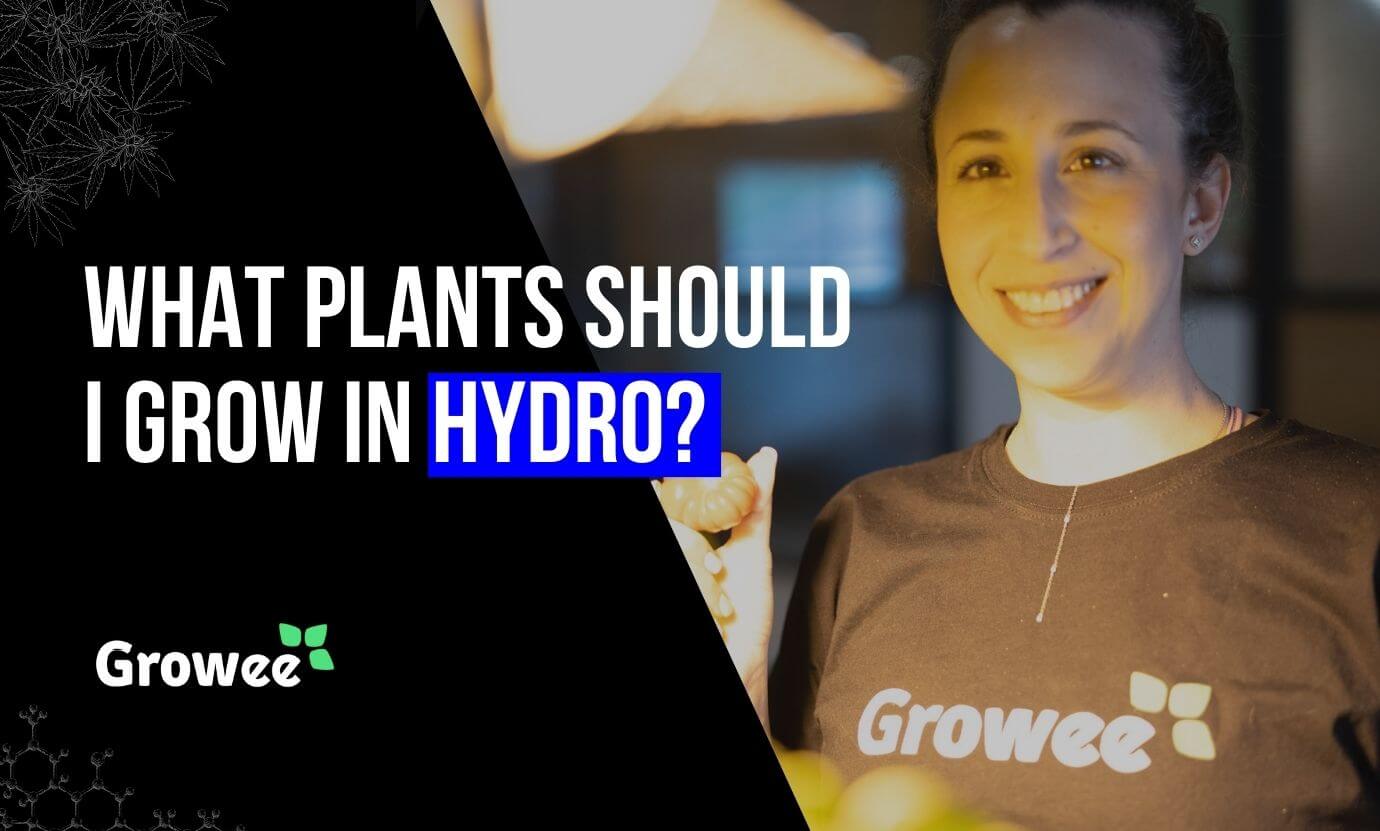Growing crops hydroponically is becoming increasingly popular. This is especially the case for people who are just sick and tired of paying such high prices for groceries.
Moreover, a good hydroponic system is something that you can build and use year-round indoors for 365-day fruit and vegetable production.
That said, some fruits and vegetables are suitable for hydroponic growth, whereas others are not. Right now, we’re going to look at a list of hydroponic fruits and vegetables that you can grow at home.
What is Hydroponics?
Hydroponics is the process of growing crops in a soilless medium. In other words, instead of planting crops in soil like most others do, here, the plants are suspended in some kind of inert growing medium, something that in itself does not provide the plants with any kind of nutrients.
Instead, all of the nutrients that the plants need come from a nutrient-water solution that is provided to the plants. There are many types of hydroponic systems out there, or in other words, many different setups with different ways in which the nutrient-rich water is supplied to the plants. However, the basis of all hydroponics systems is the same.
There is no soil, but rather an inert medium such as coco coir, perlite, clay pebbles, or anything else of the sort. The roots of the plants are allowed to hang down into a chamber or reservoir, where they are then exposed to the nutrient solution.
See How Growee Can Save You Time By Automating Your Plants Feeding
Water pH – Automated pH Up and Down Control
Nutrients Mixing – Automated Nutrient Dosing with Target EC / PPM Control.
Control From Anywhere – WiFi Connection and mobile App
What Are the Benefits of Hydroponics Systems?
Hydroponics systems have many benefits. There are many reasons to consider growing plants hydroponically.
- Hydroponic growth, even though it may sound like it uses a lot of water, is actually very water efficient, particularly the closed systems that recycle the water.
- Hydroponic systems are also very space efficient. They don’t take up much space, and there are even vertical systems that help save even more space.
- For various reasons, hydroponic systems tend to produce much faster plant growth, and for flowering or fruiting plants, much higher yields.
- Because there is no soil involved here, the chances of your plants being infested by pests and diseases are also much lower.
- Soil can be tricky to work with because sometimes it’s hard to tell how many nutrients are present. However, with a hydroponic setup, it’s easy to measure the pH and nutrient levels for great control.
- Hydroponic systems are usually set up indoors, which means that you can use them all year long no matter what the outside climate is like.
- Thanks to being efficient with water, and due to generally needing fewer or no pesticides and chemicals, hydroponic growing tends to be fairly eco-friendly.
Hydroponics vs Soil
There are some major differences between growing plants and crops in soil vs hydroponically, so let’s figure out what these are right now.
- Growing plants in a hydroponic setup is much more water efficient than growing in soil.
- Growing hydroponic crops allows for much more precise control over pH and nutrients.
- Hydroponic growing generally requires less space to be used than growing with soil.
- When you grow in soil, the chances of pests infesting the medium are quite high, which is not really the case for hydroponic systems.
- You also don’t have to pull out any weeds and invasive plants when growing hydroponically.
- Growing fruits and vegetables in a hydroponic setup generally allows for faster growth and higher yields than when growing in soil.
Why Grow Fruits and Vegetables Hydroponically?
As we have discussed in quite some detail now, growing hydroponically has many advantages, and this includes vegetables and fruit.
Simply put, it takes less water to grow plants faster and bigger, along with higher yields. Growing fruits and vegetables hydroponically also reduces the chances of pests and diseases, not to mention that you can grow and harvest all sorts of crops indoors year-round.
The Best Fruits to Grow Hydroponically
Let’s take a quick look at some of the best fruits that you can grow hydroponically.
1. Strawberries
Strawberries are sweet, juicy, and always delicious. They’re ideal for hydroponics because they have a small root system that works well in small spaces. Strawberries are also ideal candidates for vertical farming.
2. Tomatoes
Growing tomatoes hydroponically is always a good option, and one of the reasons for this is because they require specific nutrients, which can be easily controlled in this kind of system. Hydroponics also tends to produce really high yields with tomatoes.
3. Peppers
Peppers work really well in hydroponic systems because they benefit from the precise nutrient control that this growth method allows for. Also, peppers can be grown vertically, thus making this all very space efficient.
4. Cucumbers
Although most people think that cucumbers are vegetables, they are actually fruits, and they are prime candidates for hydroponic farming. They’re space efficient, they respond well to nutrient management, and they like having controlled flowering conditions as well.
5. Blueberries
Blueberries benefit from the precise pH control that hydroponic growth allows for. They also have small root systems, therefore making them ideal for small spaces.
The Best Vegetables to Grow Hydroponically
Just like some fruits are better than others for hydroponic growth, so is this the case with vegetables.
1. Lettuce
Lettuce doesn’t need many nutrients, it has a small root system, and it grows very quickly (especially in hydroponic systems), all of which make it a prime candidate. Read this guide on how to grow hydroponic lettuce.
2. Spinach
Spinach is another great vegetable to grow hydroponically, mainly because it grows much faster this way than it does in soil, plus spinach does very well in strictly controlled environments.
3. Kale
Kale seems to benefit greatly from hydroponics because it is much better able to absorb nutrients from the water than from the soil.
4. Cilantro
Many people also grow cilantro hydroponically, mainly because it benefits from the exact temperatures, nutrients, and light levels provided by a high-quality hydroponic setup.
5. Basil
What’s really cool about growing basil hydroponically is that it allows for great year-round harvesting. Hydroponically-grown basil usually has much more flavor as well.
How to Grow Hydroponic Fruits and Vegetables?
To grow hydroponic fruits and vegetables, you first have to choose the right hydroponic system for your needs. This could be deep water culture, ebb and flow, nutrient film technique, and more. Do some research to find out which is best for you.
Once you’ve chosen the right setup, you can go about building it, and then choose the fruits and plants you wish to grow. Consider that different crops may work better or worse with specific hydroponics setups.
Once you have everything bought and built, prepare a nutrient solution according to the nutritional needs of the fruits or vegetables in question. Once that is done, you can germinate the seeds, monitor the growth of the sprouts, and then transfer the sprouts into the hydroponic system.
Remember that you need to provide the plants with adequate nutrients, airflow, light, and more.
How to Build a Hydroponic Garden?
To build a hydroponic garden, you first need to choose the type of hydroponic setup that will work best for you. Once you’ve made your choice, you’ll need to gather the supplies. The first real step here is to set up the reservoir, followed by the water pumps and air stones, and then the grow lights.
You then need to prepare the inert medium for the plants, mix the nutrient solution, and keep your plants fed. You want to keep the plants safe by constantly monitoring EC and pH levels, as well as temperatures. Using something like the Growee Automated Hydroponic System will help you do all of this, and much more!
How to Keep Hydroponic Crops Safe?
Follow the tips as listed below to keep hydroponic crops safe.
- Always use the hydroponics setup type that is best suited for the crops in question.
- Be sure to use high-quality water and ensure that it does not have chlorine in it.
- Ensure that you maintain proper water and air temperatures for the plants in question.
- Closely monitor the pH and EC levels according to the needs of the crops in question, and adjust as needed.
- Always inspect your crops for signs of pests or disease, and then deal with them as necessary.
- Make sure that the nutrient solution is properly aerated, because those plant roots still need oxygen.
- Ensure regular maintenance and cleaning of the system to prevent clogs or bacterial buildups from occurring.
Conclusion
The bottom line is that there are plenty of fruits and vegetables you can grow hydroponically, and which ones you choose depends on your personal preferences. Just remember that there are plenty of tools out there that can make your journey as a hydroponics user much easier and more fruitful!
FAQ
What fruits can be grown hydroponically?
Fruits like berries, tomatoes, peppers, cucumbers, and anything else relatively small work well in hydroponics systems.
Are hydroponic fruits and vegetables organic?
If you don’t use any pesticides or chemicals, then yes, hydroponic fruits and vegetables can be organic.
Can hydroponic farming be done at home?
Yes, hydroponic farming can be done at home, which is indeed one of its main advantages.
Do I need a big garden space to grow hydroponic crops?
Another big advantage of hydroponic crops is that you don’t need much space for them.
How is hydroponic farming different from traditional farming?
Hydroponic farming is different from traditional farming because hydroponics does not use any soil, whereas traditional farming uses soil as the main growing medium,
Is hydroponic farming sustainable?
How often grow lights need to be replaced depends on the exact kind of grow lights in question.



